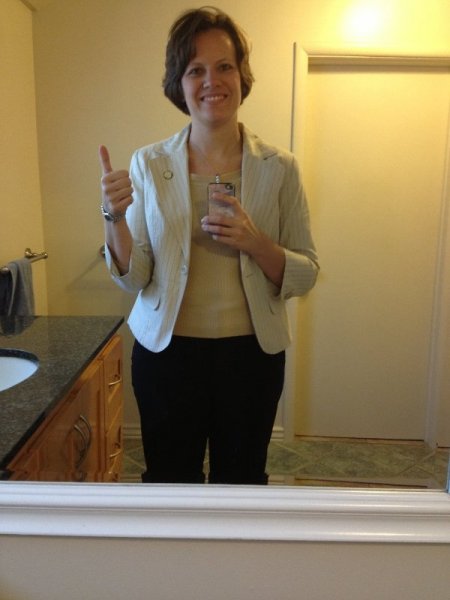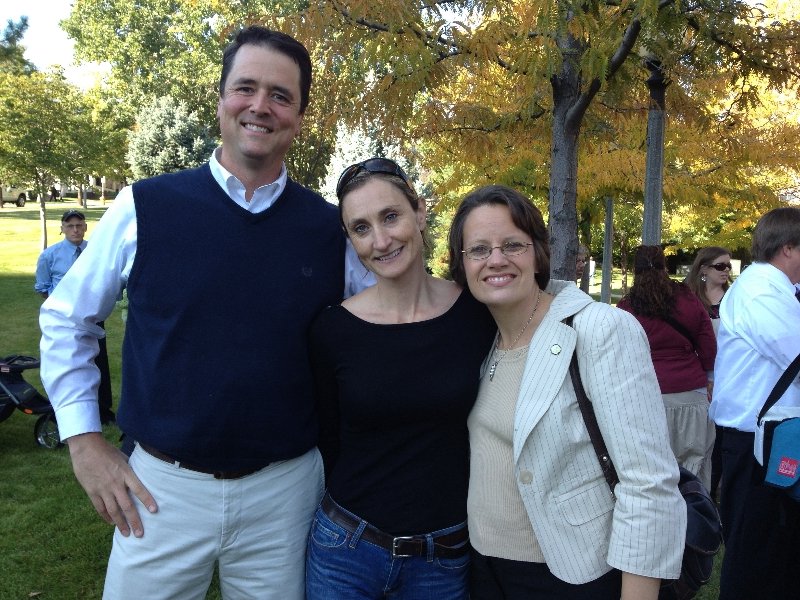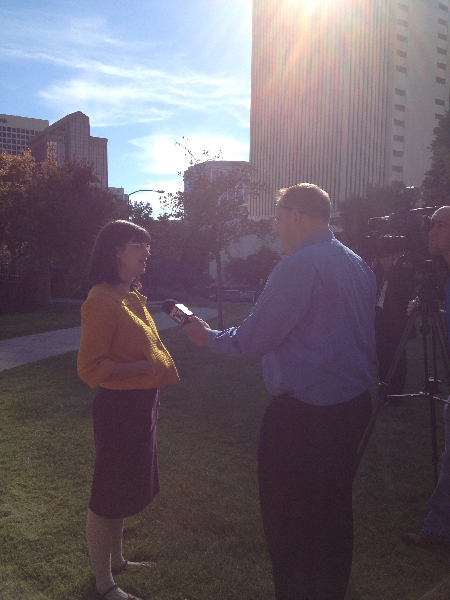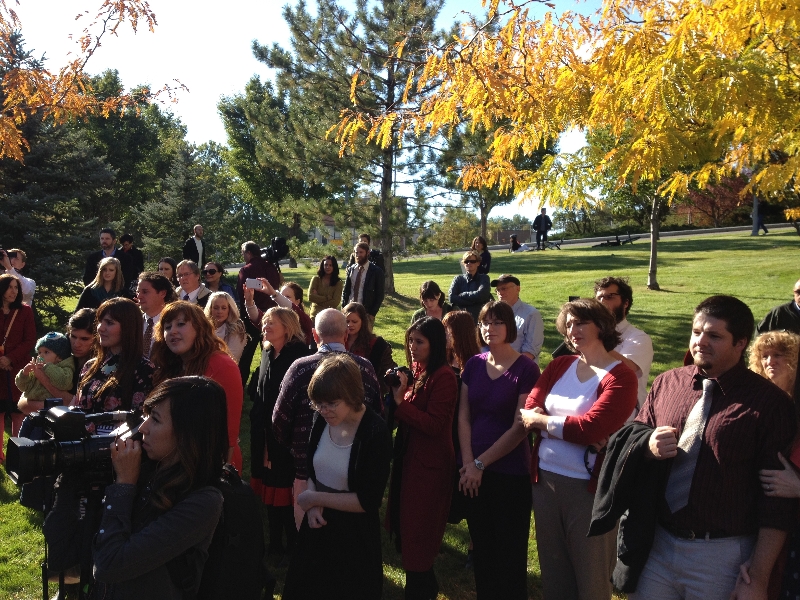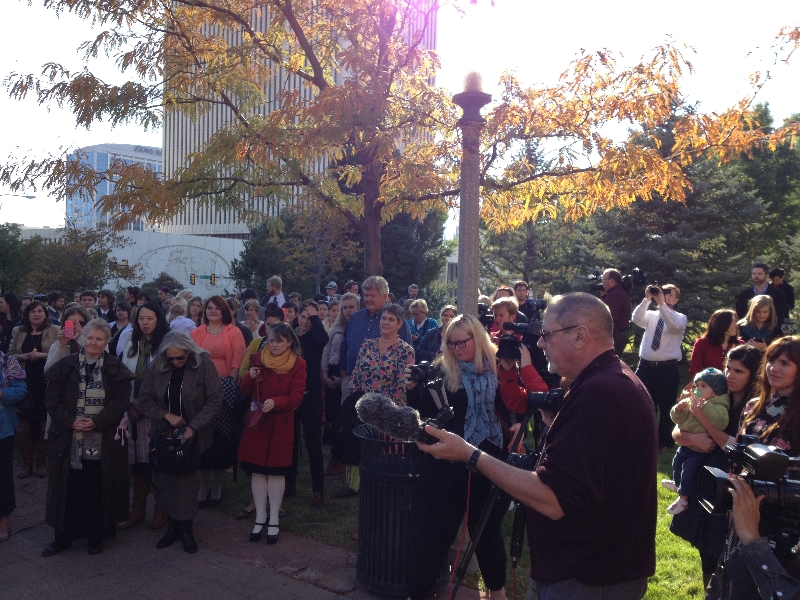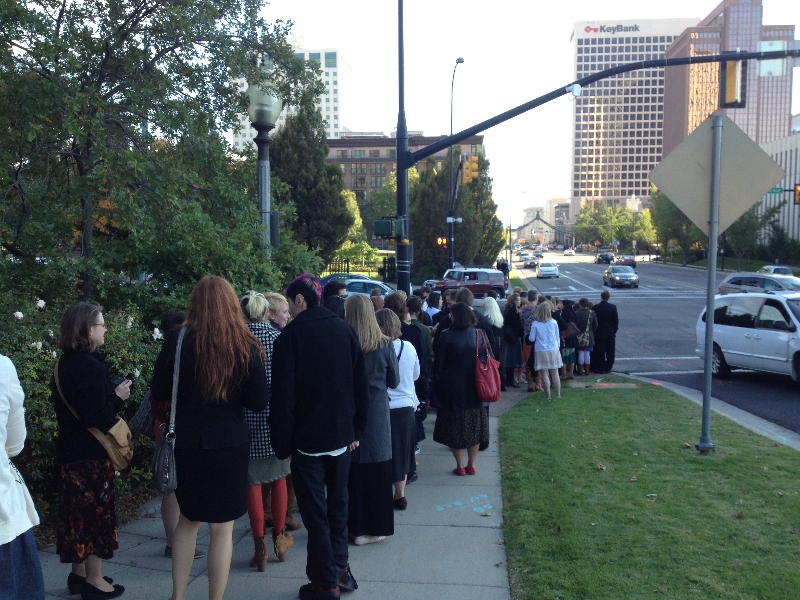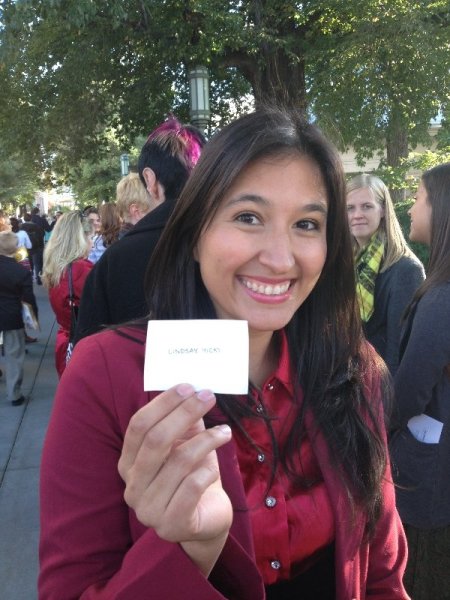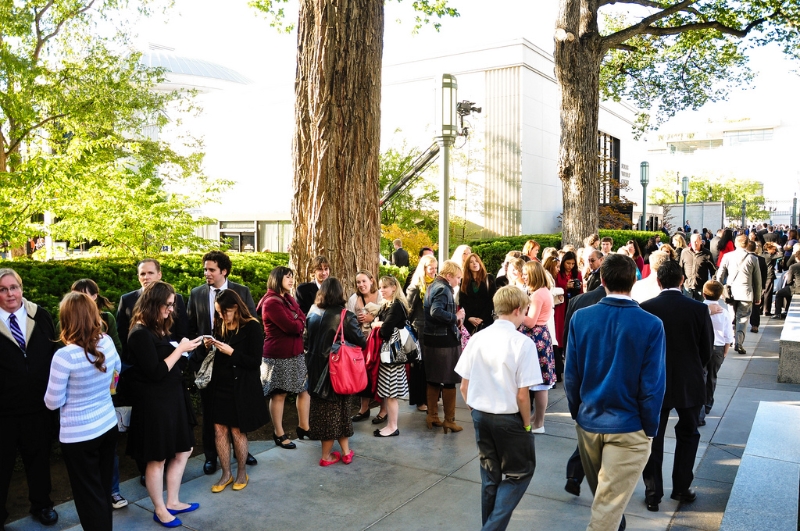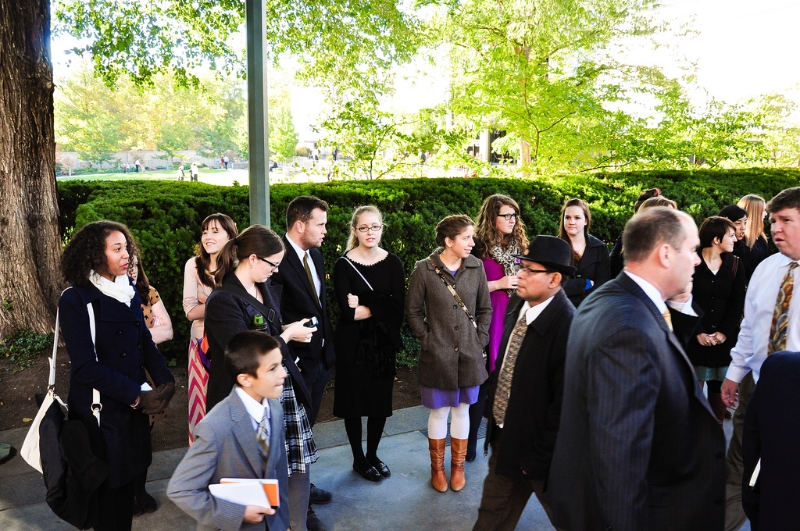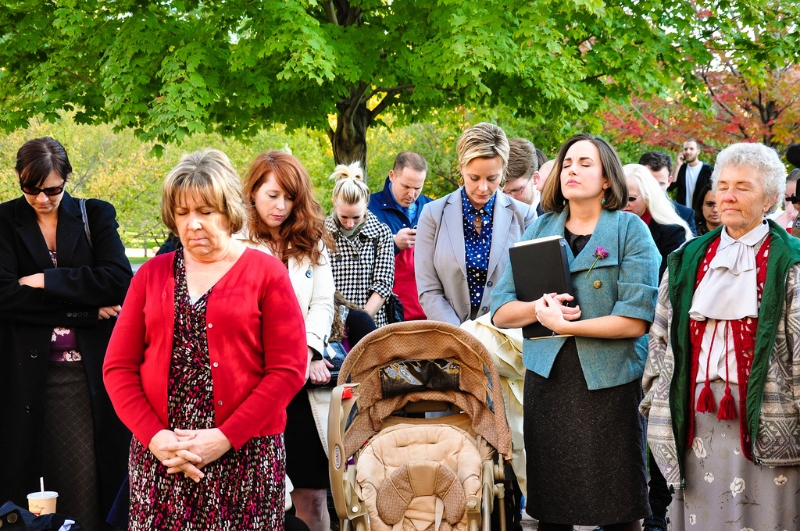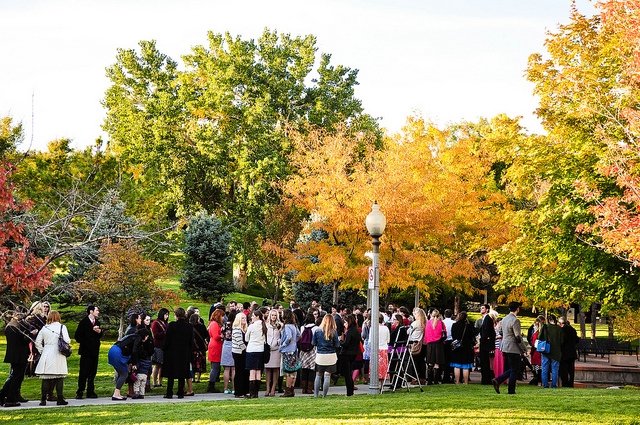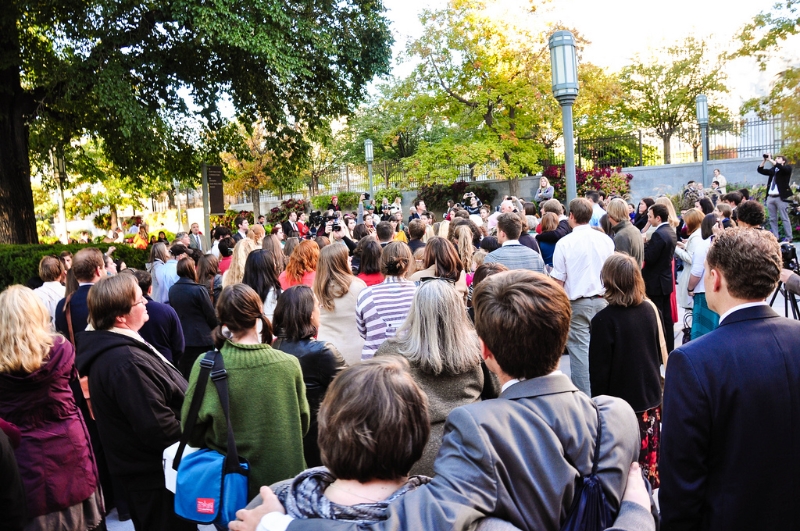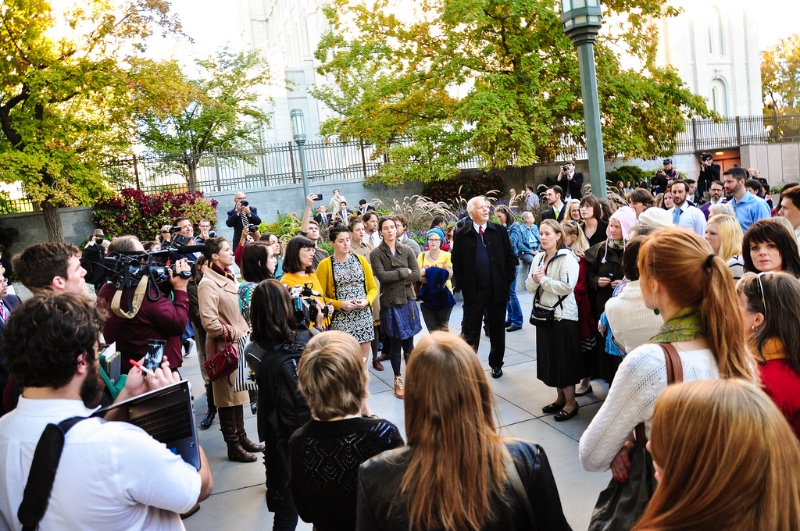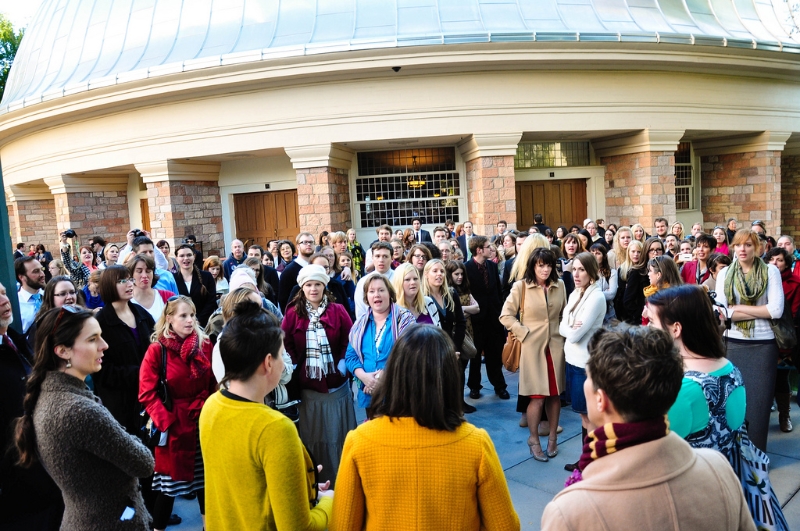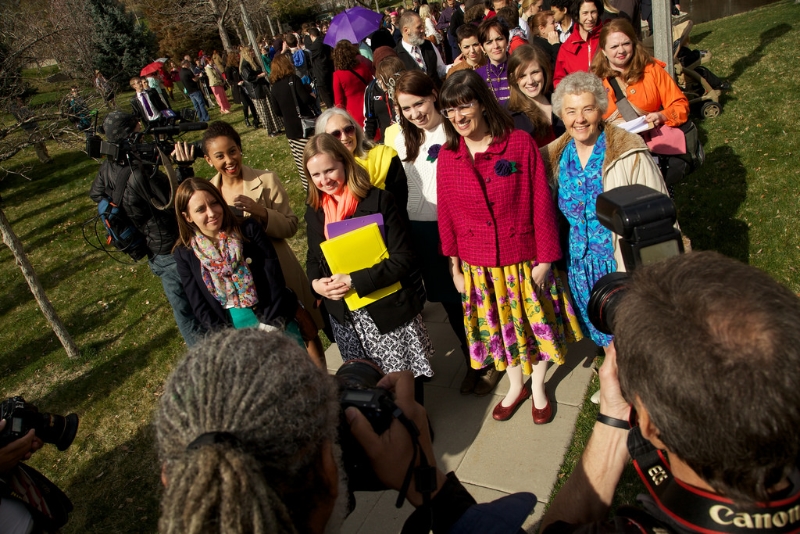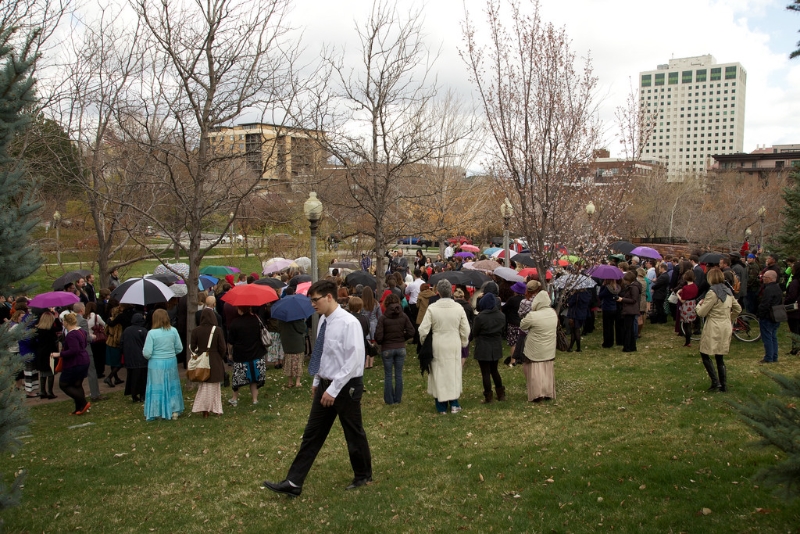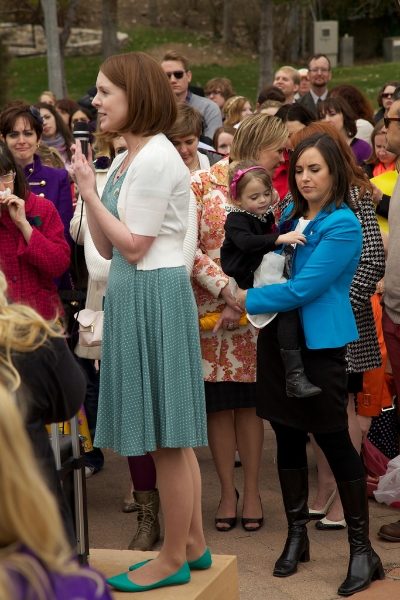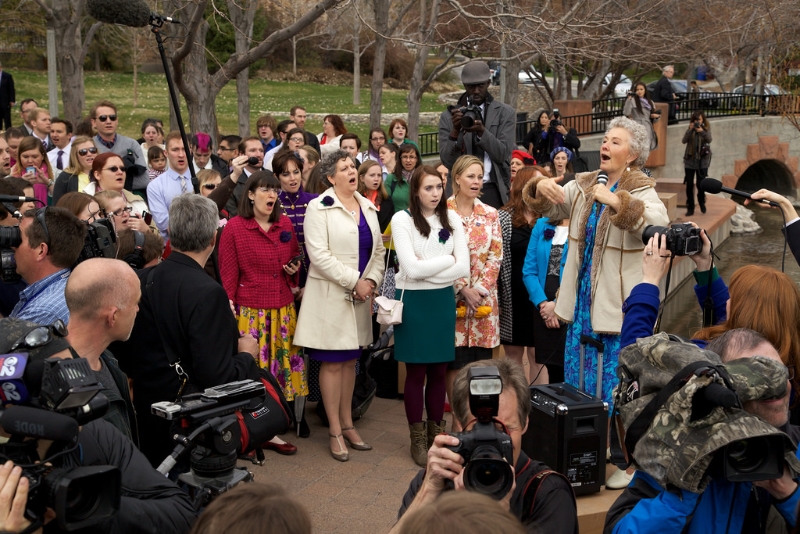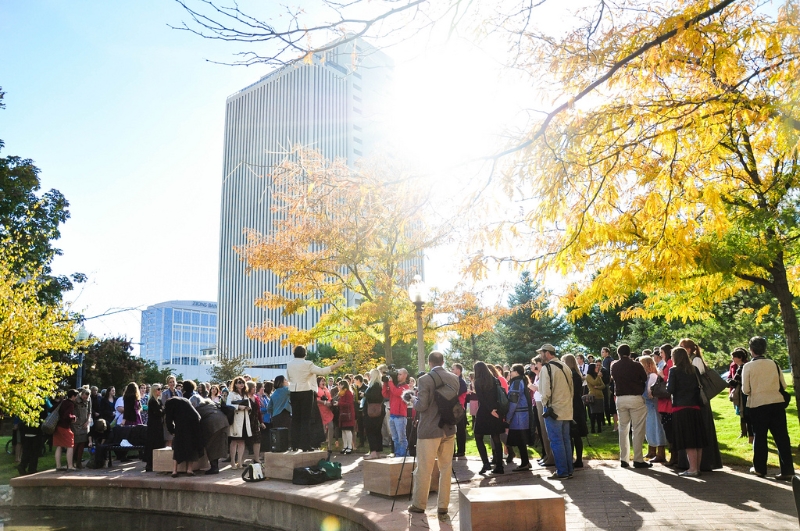In September 1993, I was a 20 year old, already-married (gasp!) undergrad at BYU. I watched the September Six play out with some combination of fear, horror, confusion, befuddlement, and disgust.
And then I silenced myself. I retreated into a safe corner, because that’s where good and “obedient” Mormon women reside. I am ashamed to say that I unwittingly began to teach my daughters that that was the space for them, for us. I occupied that silenced, marginalized space for about 15 years before things started falling apart. For me, it was not one thing that I found out or discovered. It was a lot of things. Death by a thousand cuts. Slow slicing, as I just learned in a book I was reading last week. More like that.
****************
Fast forward almost 21 years, to today.
In Nicole Hardy’s beautiful memoir, Confessions of a Latter-day Virgin, she mentions that her decision to leave the Mormon church came about-at least in part (and this is me summarizing, and projecting)-because the Mormon church ceased to be a place where she could experience hope.
That part of the book struck me, hard, when I first read it. And I have returned to that thought frequently over the months since I read the book.
In many ways, the Mormon church has also ceased being a place where I can experience hope. And light. And brightness. Things that a human soul needs to lead a happy, meaningful life.
And I have contemplated taking my sometimes broken and hopeless Mormon soul elsewhere. Just packing up my marbles and going home. Going somewhere else. Or nowhere. But for sure getting to a place where women aren’t silenced and punished for asking questions and for reverently and persistently asking for greater participation in our religious lives. To a place where women cannot be summoned to all-male tribunals-that, in this case, can be held without the woman in attendance-where a group of just 4 (yes, FOUR) men can render all her official Mormon records null and void. Four men can-without the woman present-undo a woman’s baptism, confirmation, temple marriage, and other ordinances sacred to Mormons and considered necessary for eternal salvation. And they can do it while relying on policies in a handbook that only NINE women are allowed to see.
And to a place where people who ask hard questions, seek for greater truth and transparency, speak publicly as allies for LGBT rights and equality, and try to help others navigate difficult religious and spiritual issues with more peace and psychological/mental health, are welcomed rather than threatened with excommunication.
Don’t think I haven’t thought about taking my hope (and my energy and my resources and talents) elsewhere.
But today is not that day. I am not broken. And I am not hopeless.
I have seen hope and the fruits of that hope in the Mormon church. Here’s what it looks like:
;

